FAQs
Common questions
The group started in 2010 when Fiona Tiernan and Marian O’Dea got together and decided to form a women’s Dragon Boat team. They sought funding from the Health Services Executive and Breast Cancer Ireland to fund two Dragon Boats, Anna and Livia. The group has gone from strength to strength and now has 100 members.
Dragon boating is a team water sport, which originated in China centuries ago. In 1995, Dr. Don McKenzie at the University of Columbia launched “Abreast-In-A-Boat”. He wanted to research the effects of repetitive upper body exercise in women treated for breast cancer. At the time it was thought that this kind of exercise might worsen lymphoedema - a swelling of the arm that affects some women after surgery.
His study involved 25 women. None of the women with lymphoedema became worse and no new cases were reported. The use of Dragon boating as a means to help women (and men!) with breast cancer has now grown to 150 teams worldwide, including teams in Cork, Waterford, Clonmel, Donegal, Belfast and Mayo.
It’s a great way to get active, fit and healthy! Studies have also found that a gradual programme of upper-body exercise in those treated for breast cancer can help improve movement to the area of surgery and/or radiation.
We are based in the Grand Canal Basin, Ringsend end. We store the boats near the slipway - where the Viking Splash Tours’ amphibian boats enter the dock. Our clubhouse address is Grand Canal Wharf, South Dock Road, Dublin 4. D04 T970.
No experience is required. We were all newcomers to the sport and we have new people trying it out on an ongoing basis. You will be shown how to use the paddle before you go out in the boat.
We recommend waiting a minimum of three months after treatment before taking up paddling. You should also seek medical advice before taking up exercise. But you’re always welcome to join us in the clubhouse after training for a cup of tea before the three months are up.
We have dedicated members who meet new paddlers at their first session and answer any questions that they may have. To set up a meeting, you can go to our contact page.
You don’t need any equipment to try it out as you will be given a buoyancy aid and paddle for the session. It is best to wear clothes that allow you to move freely. Avoid “plant” based materials such as cotton or linen - especially jeans - as they tend to hold water when wet. Bring a rain jacket if you have one and a change of clothes as we tend to splash a bit when learning how to paddle! A small bottle of water is also a good idea - paddling is a form of exercise, so it is best to stay hydrated.
The boat is very stable and is unlikely to capsize. The helm pairs people of equal weight and ensures the boat is well balanced before taking the boat out. The helms are all trained to a high standard and are very capable. In the unlikely event of a capsize, the buoyancy aid will keep you afloat and enable you to reach the dockside. Once a year, the coach organises a planned capsize drill to give people a chance to experience what it is like.
Our coaching team is led by Rosemary Phelan, a member of the Senior Irish Dragon Boat Team 2016 and 2018. Rosemary is supported by our 16 helms and our O1 Coaches.
Training takes place every Saturday morning at 8.30am and also at 6.30pm on Wednesday evenings in the spring and summer months. You decide when you want to come and there is a system in place to sign up for the sessions. This makes it easier for the person who is helming the boat that day to plan the session. If you decide to become a member you will be given access to the Teamer system, but you don’t need to worry about this initially.
The membership fee is €100 for the year. We try to cover our own costs as much as possible and this fee covers clubhouse costs, insurance, replacement and equipment. You are welcome to come along for two sessions and then decide if you want to join.
There is no medical supervision at training sessions. We take the approach that each person is responsible for their own well-being, so if you feel tired you can do a half session or if you are in the boat and feel you can’t continue paddling, you just stop and take a breather.
Here are some useful links to the HSE website:
https://www2.hse.ie/conditions/lymphoedema/
https://www2.hse.ie/conditions/breast-cancer-women/
https://www2.hse.ie/conditions/breast-cancer-women/prevention/


